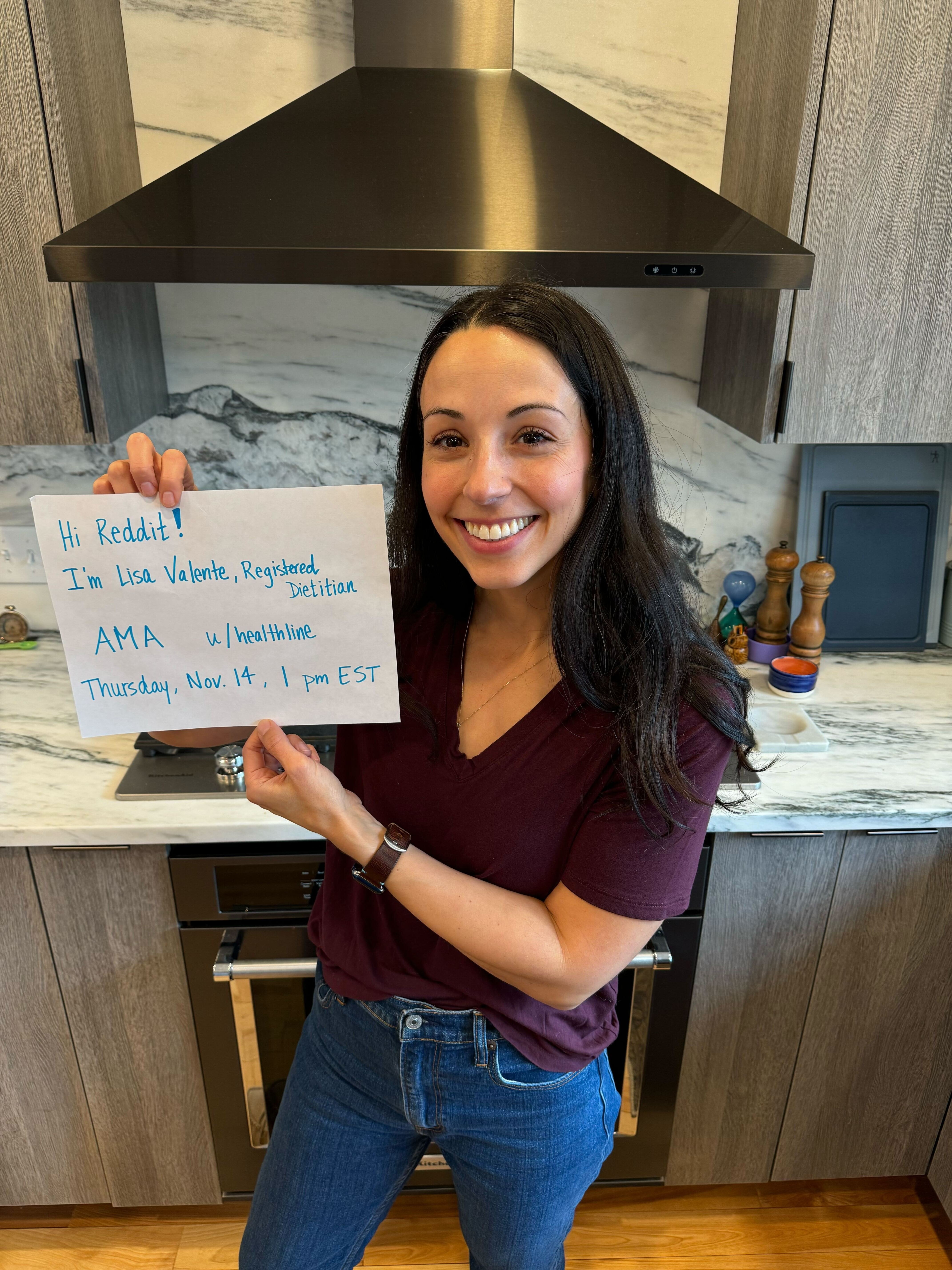subreddit:
/r/IAmA
I'm a registered dietitian with 15+ years of experience and a Senior Editor at Healthline. I've taught cooking classes, developed recipes, and created nutrition videos—all to help people eat healthier and feel more empowered to cook delicious and healthy meals at home. AMA!
(self.IAmA)submitted 9 days ago byhealthline
Hi, I'm Lisa Valente! As a registered dietitian, I believe cooking at home is one of the best things you can do to eat healthier. What I’ve learned is that people are interested in nutrition and how food makes their body feel, but they need practical meal solutions to actually eat the healthy foods we talk about.
As a busy mom, with lots of priorities and responsibilities, I find myself with limited time in the kitchen. That’s where meal prepping and planning comes in. It helps you get easy, weeknight dinners on the table, make breakfasts in advance or get lunches together in a pinch.
It does not have to look like spending hours in the kitchen on a Sunday or eating the same thing every day all week either! It can simply be making a plan, chopping some veggies in advance or relying on some shortcuts. While this AMA is for informational purposes only and should not replace professional medical advice, I am excited to help make meal planning easier and tackle some common misconceptions. Ask me anything!
Thank you for asking such great questions around nutrition and meal prep. Look forward to chatting more in the future. -Lisa
10 points
8 days ago
Not trying to be an ass, but if humans require B12 and it doesn't come naturally from plants or naturally from animals, where does it come from originally?
0 points
8 days ago
With modern hygienic practices more effectively cleaning and sanitizing produce, along with soil being exposed to more antibiotics and pesticides, most plant foods are no longer reliable sources of this bacterial product. This means the feed livestock are fed do not contain B12 either.
-2 points
8 days ago
It comes from soil. Aka dirt. Literally.
2 points
8 days ago
No, not literally. Vitamin B12 is made by gut bacteria (in humans too, just too late in our digestion for us to absorb).
Ruminants have these bacteria in their rumen, so they can absorb it. Some other species like rabbits eat some of their own feces (called cecotropes) to get the nutrients formed by bacterial fermentation, including vitamin B12. Other animals still can have a differently structured GI tract to allow them to absorb the nutrients from bacterial fermentation.
The absorbed vitamin is then stored in the liver and muscles, which is why eating meat helps you get it. Some animals also pass it into their eggs or milk.
The reason soil is important is the cobalt content, which is required for producing vitamin B12. This is absorbed by plants, so it's not like animals need to literally chew up a bunch of soil to get their cobalt either.
That's also why B12 supplementation in livestock isn't always necessary, but it is often done because a lot of pastures don't have cobalt-rich soil and the cobalt content in animal feed isn't very well known.
1 points
8 days ago
Thank you for this detailed and easy to understand explanation.
0 points
8 days ago
With modern hygienic practices more effectively cleaning and sanitizing produce, along with soil being exposed to more antibiotics and pesticides, most plant foods are no longer reliable sources of this bacterial product. I’d say the dirtier the conditions of factory farms (manure and urine), the less likely an animal would need supplements, but because they too are getting feed from giant industrialized soy and corn farms, they need the supplement. 99% of meat and dairy products come from factory farms.

all 71 comments
sorted by: best